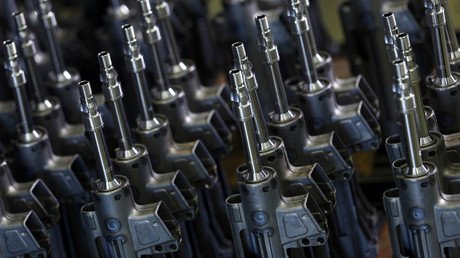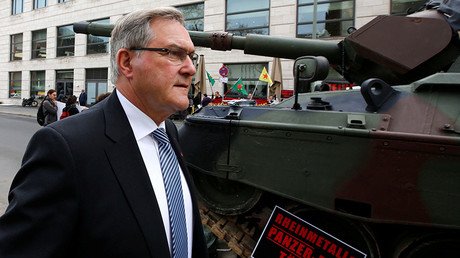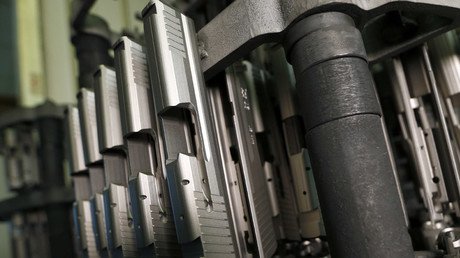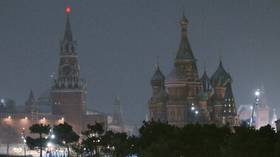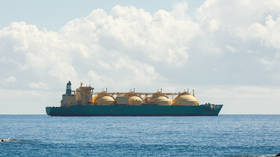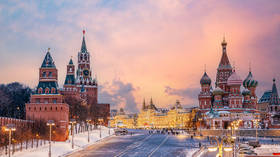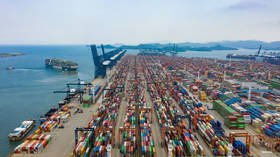Germany freezes arms exports to Turkey, Ankara says it weakens anti-terrorism fight
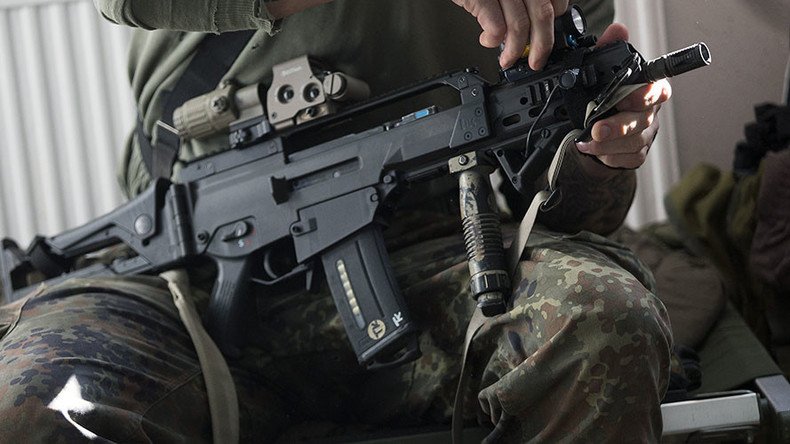
Germany has put all big arms exports requests from Turkey on hold, German Foreign Minister Sigmar Gabriel said, amid the bitter dispute with Ankara. Turkey said the decision weakens Turkey’s fight against terrorism.
Gabriel’s comments came after German media revealed that Berlin still sells sophisticated weapons and ammunition worth millions of euros to its long-standing NATO ally.
“We have put on hold all big requests [for arms exports] that Turkey has sent to us, and these are really not a few,” Gabriel said during a panel discussion organized by ‘Handelsblatt’ newspaper, as cited by Reuters.
Berlin is aware of its obligation to send arms to its NATO ally if requested, Gabriel said. However, he added, this was currently not possible, with some exceptions such as exports of vehicles.
Turkish EU Affairs Minister Omer Celik reacted to Sigmar’s statement later on Tuesday, saying that Germany’s decision compromises Turkey’s efforts to combat terrorism.
“This decision will weaken Turkey's fight against terrorism, and weakening the Turkish fight would mean making Europe's future more vulnerable. Germany must leave security issues out of political discussions,” Celik said, as cited by Reuters.
“The German foreign minister must formulate his comments seriously. Those arms are being used in the struggle against PKK and ISIS (Islamic State, also known as IS, ISIL),” Celik concluded. PKK or the Kurdistan Workers' Party is designated a terrorist organization by Turkey and the US.
On Tuesday, the German Chancellor Angela Merkel toned down Gabriel’s rhetoric by saying that Berlin might still change its mind in the future as it would assess each arms deal with Turkey “separately.” She also said that Turkey is still Germany’s ally and the two countries “fight together against Islamic State (IS, former ISIS/ISIL), against Islamist terrorism.”
“I cannot yet say that we will put all [arms sales] on hold but… we will look closely into the issue,” Merkel told the German NDR Info radio broadcaster, adding that “we will decide separately for each and every instance what arms we would export [to Turkey].”
Ankara has already reacted positively to Merkel’s comments, as the Turkish Foreign Minister Mevlüt Çavuşoğlu said that his country found the German chancellor’s stance more suitable, as reported by Reuters.
The minister went on to say that Germany’s decision to put arms deals with Turkey on hold would only make Turkey stronger and help it develop its defense industry. “Such approaches would only lead to strengthening our national defense industry,” he told the Turkish media, adding that his country is already actively developing its military-industrial complex.
Earlier a report in German media that revealed that though heated exchanges between leaders in Ankara and Berlin make headlines in Europe and elsewhere, it appears that vibrant German-Turkish arms sales still continue.
This year alone, Germany approved arms sales to Turkey worth €25.36 million ($30.31 million), according to the Economy Ministry’s response to a Green Party MP Özcan Mutlu obtained by DPA news agency. In the first half of 2016, Berlin gave the green light to 158 weapons deals worth €69 million ($82 million), the news agency said, according to ‘Handelsblatt’ daily.
While not on a giant scale, the sales covered state-of-the-art weapons systems and ammunition being delivered to Turkish armed forces.
The two largest arms deals between Germany and Turkey included in the list provided by the ministry envisaged Berlin selling Ankara “bombs, torpedoes and aircraft” for a total amount of €18 million ($22 million). According to the German government, those two deals mostly involved deliveries of missile defense systems for the Turkish Navy’s ships.
Sea and land-based weapons systems were also on the arms sales list that comprised “infrared thermal equipment,” “special naval equipment” as well as “military aircraft equipment.” Hi-tech products like military purpose electronics and fire control devices were also mentioned in the report.
Notably, the ministry withheld data on the sales value while reporting on ammunition, explosives and “individual protective gear.”
Mutlu said the very fact that Germany is selling arms and ammunition to Turkey plays right into Ankara’s hands.
“As business goes on, Ankara is not taking threats or the likes from Berlin seriously,” he said, according to ‘Die Welt’. “The federal government must finally follow its words in order to protect German citizens in Turkey,” he said.
Interestingly, the Economy Ministry in March this year denied that arms shipments from Germany to Turkey had taken place over the past months. According to a letter from the Ministry of Economic Affairs cited by Sueddeutsche Zeitung newspaper, a total of eleven applications for arms deliveries to Turkey have been blocked by Germany.
The Turkish military uses numerous German-made small arms, as well as heavy armor and other military equipment. The time-proven G3 assault rifle has been in use with Turkey’s land forces for several decades, as was, for instance, the famous Leopard 2 main battle tank.
Two types of Turkish Navy frigates, the Yavuz-class and Barbaros-class, were designed and built by German shipyards Blohm & Voss and Howaldtswerke.
Relations between Berlin and Ankara remain strained following the failed July 2016 coup attempt in Turkey that resulted in a mass crackdown on opposition figures. Those affected include teachers, journalists, security personnel, army officers, and civil servants accused of being sympathetic to Kurdish separatism, and self-exiled cleric Fethullah Gülen, who Turkey says masterminded the coup.
Following the purges, Turkey saw a wave of obloquy coming in from European states, including Germany. Berlin also voiced concerns about the constitutional reform that handed Erdogan wide-reaching new powers after being approved at the referendum in April 2017. Prior to the vote, a number of pro-Erdogan rallies and events at which top-tier Turkish officials were to address the large Turkish community living in the EU were banned in some European countries, including Germany.
Ankara has slammed the cancelations as an overreaction, and branded German leaders “Nazi remnants” who were proponents of “fascist practices.”
Germany has repeatedly accused Turkey of human rights violations and has demanded the release of German nationals detained by Ankara over alleged "terrorism support" and participation in the coup attempt. Turkey arrested two German journalists, one of whom has dual citizenship, having accused them of espionage.
Amid the row, Berlin also withdrew its troops and military aircraft from Turkey's Incirlik Air Base. Earlier, Germany recognized the early 20th century massacre of Armenians in the Ottoman Empire as "genocide."
In July, the German government urged its citizens to exercise caution when visiting Turkey. However, no formal travel warning has been issued.
In early September, both the German Chancellor Merkel and her SPD challenger Martin Schulz agreed during a TV debate ahead of the forthcoming parliamentary elections that “Turkey should not become a member of the EU.”
